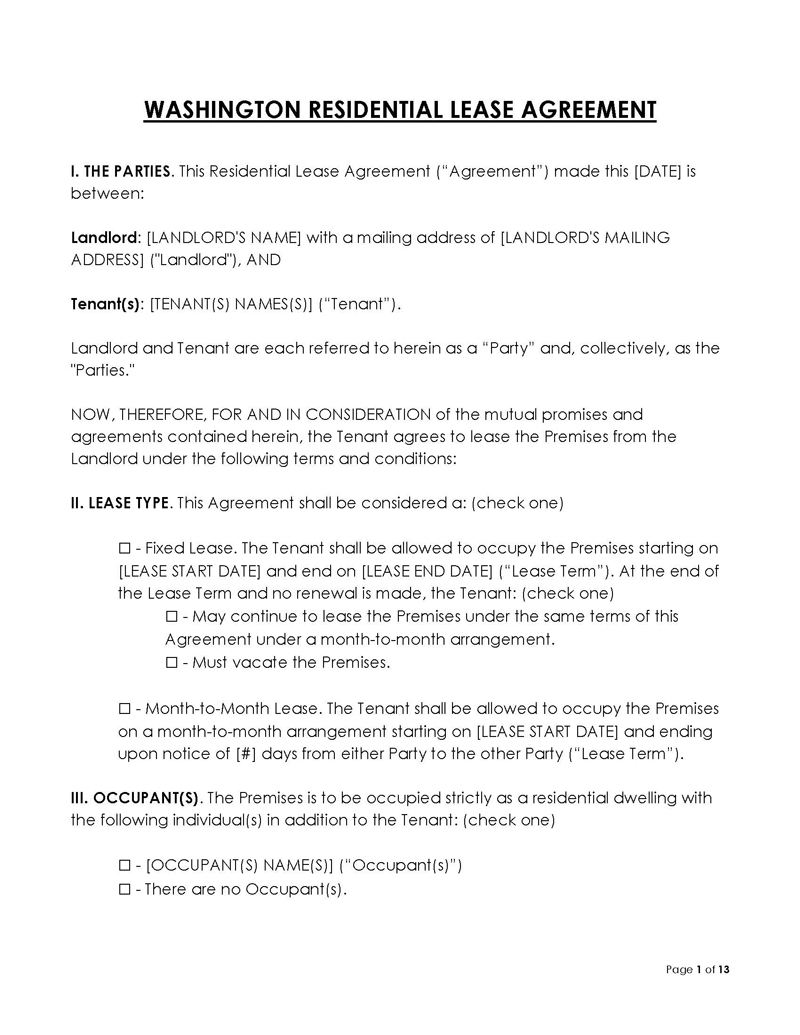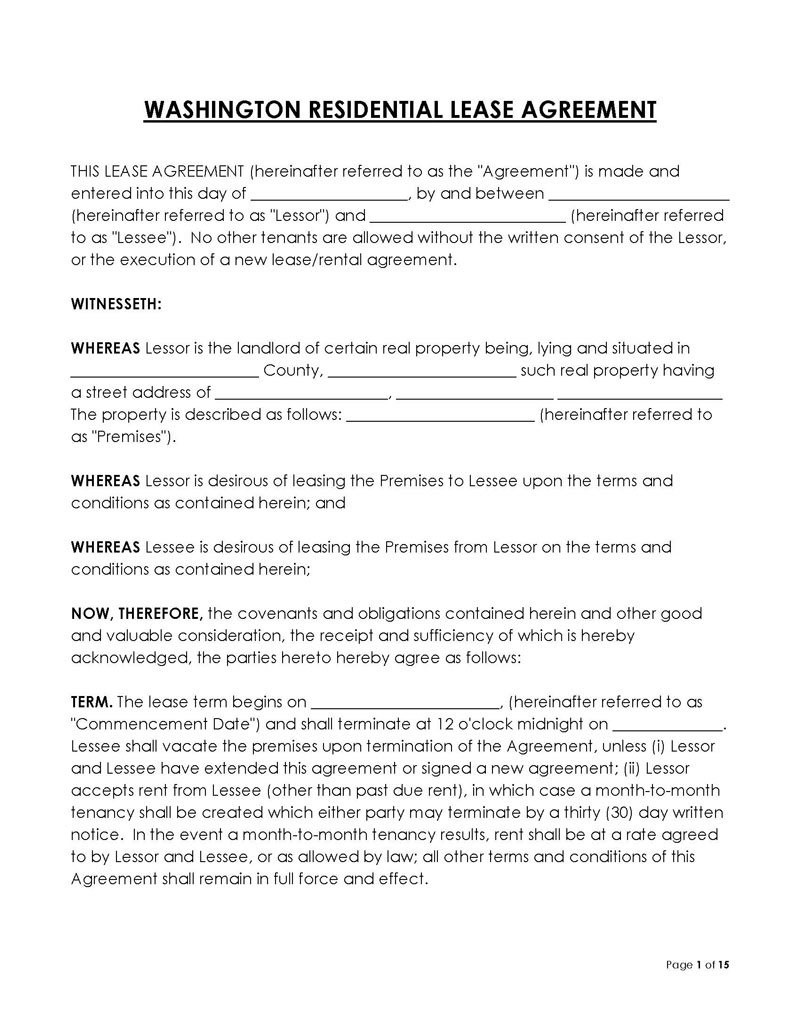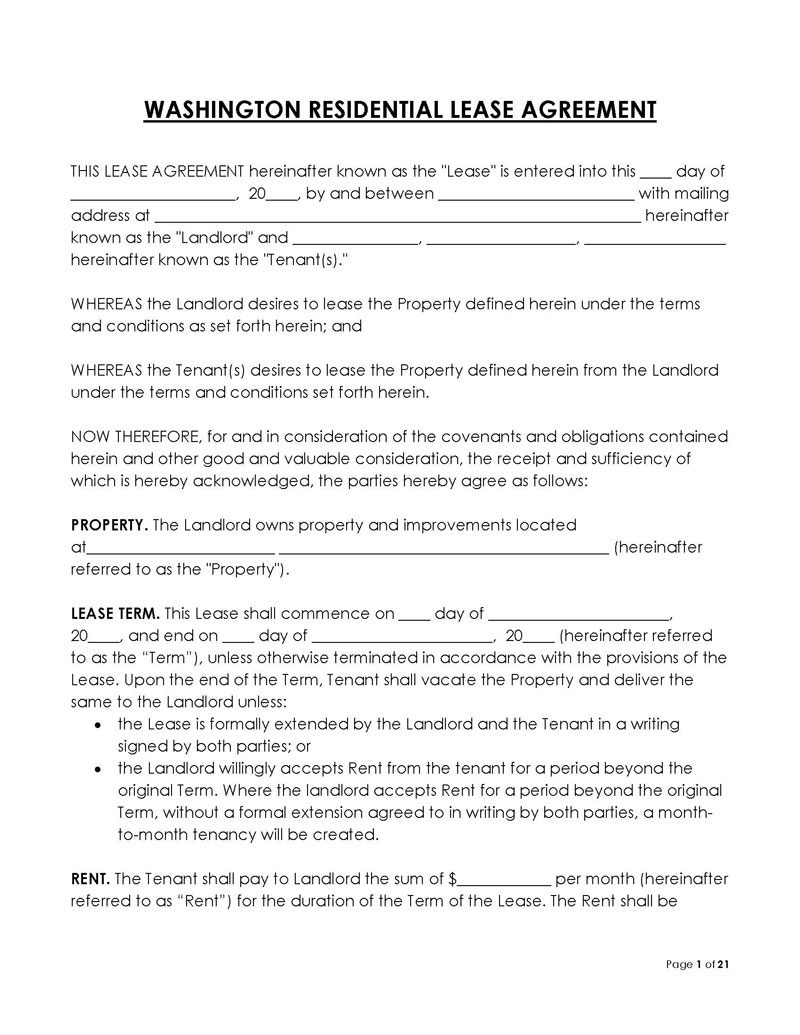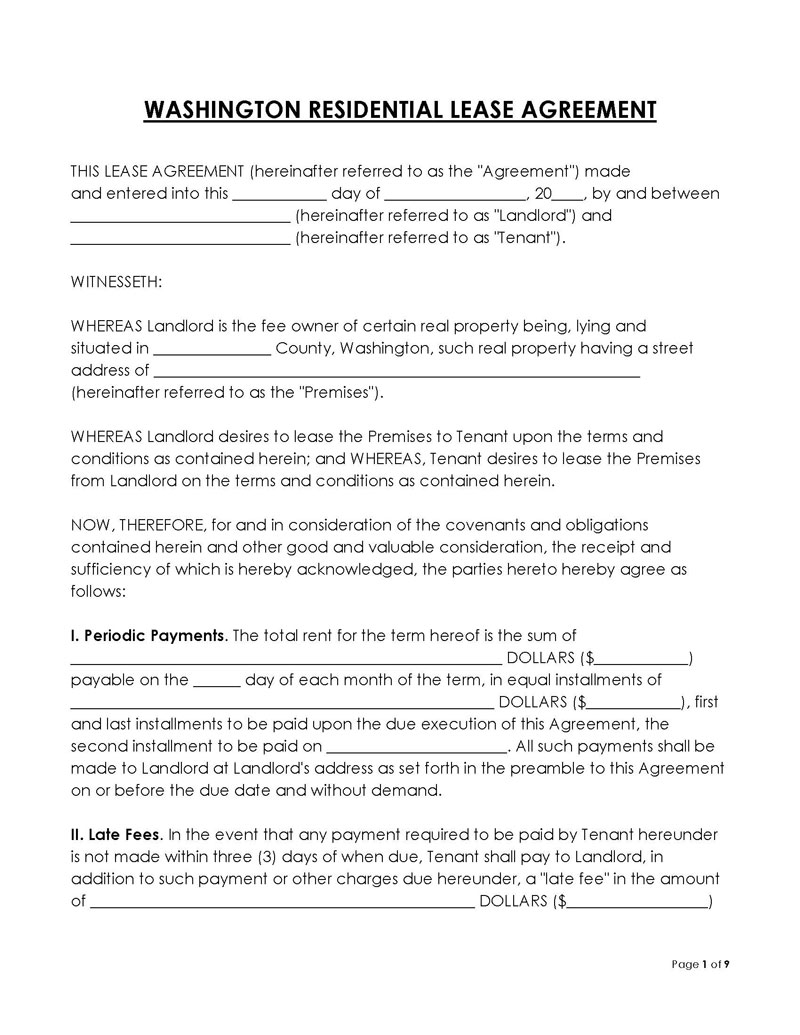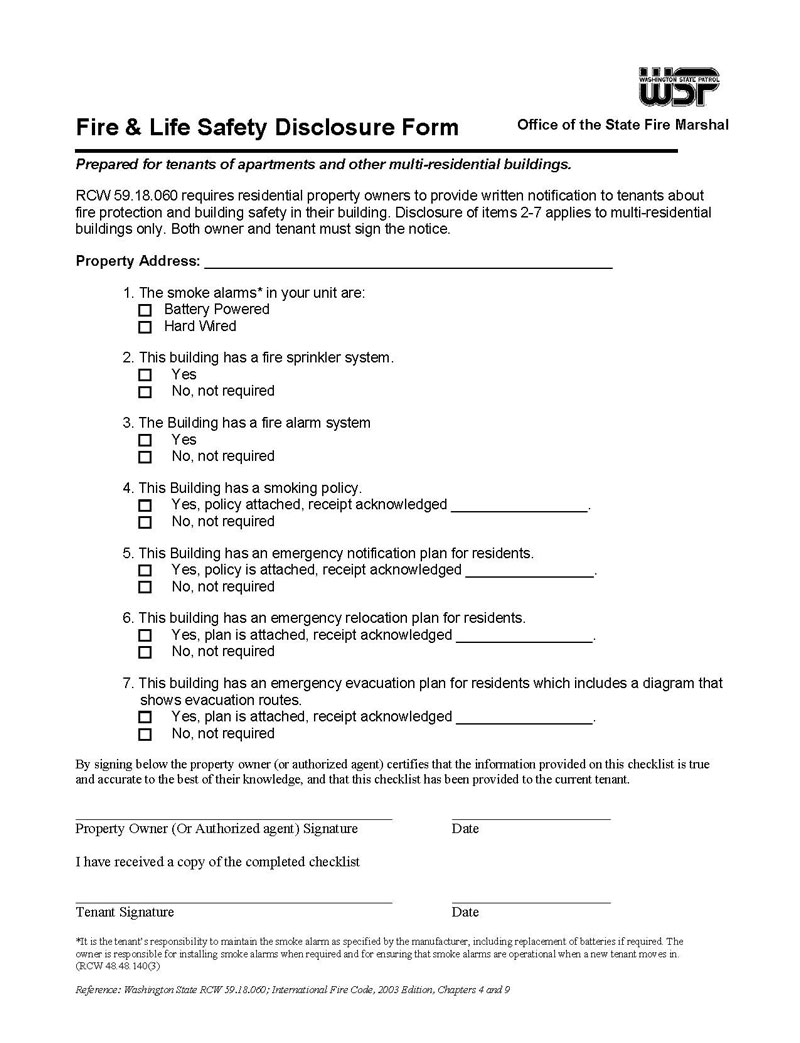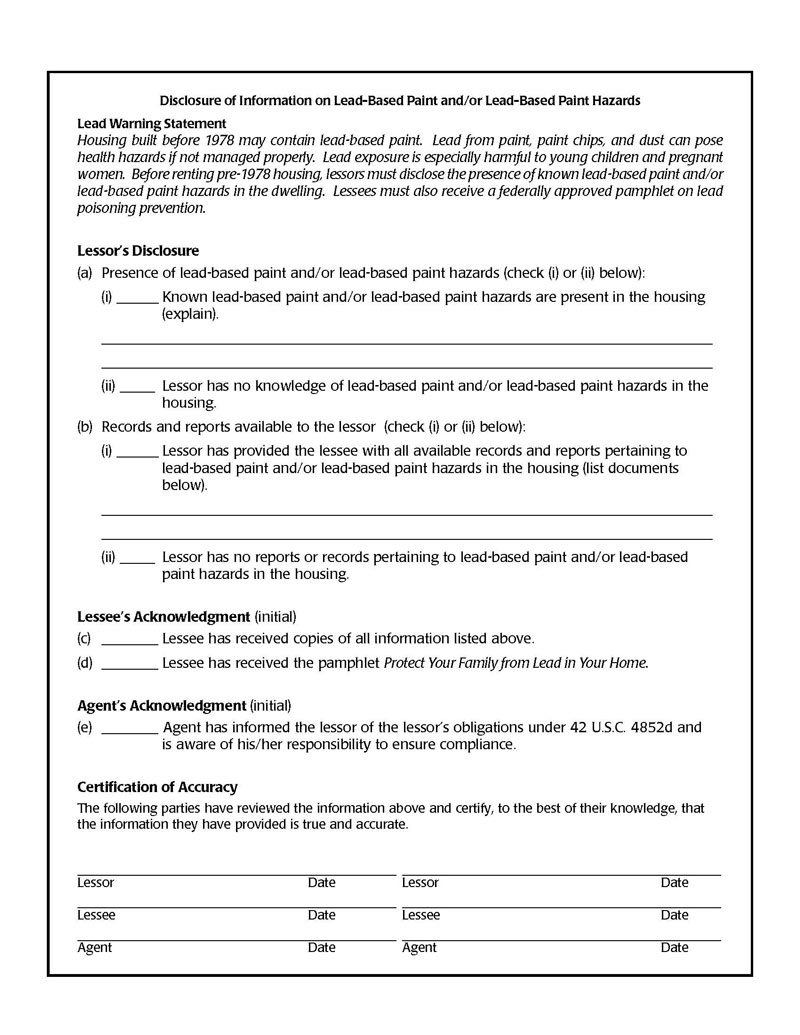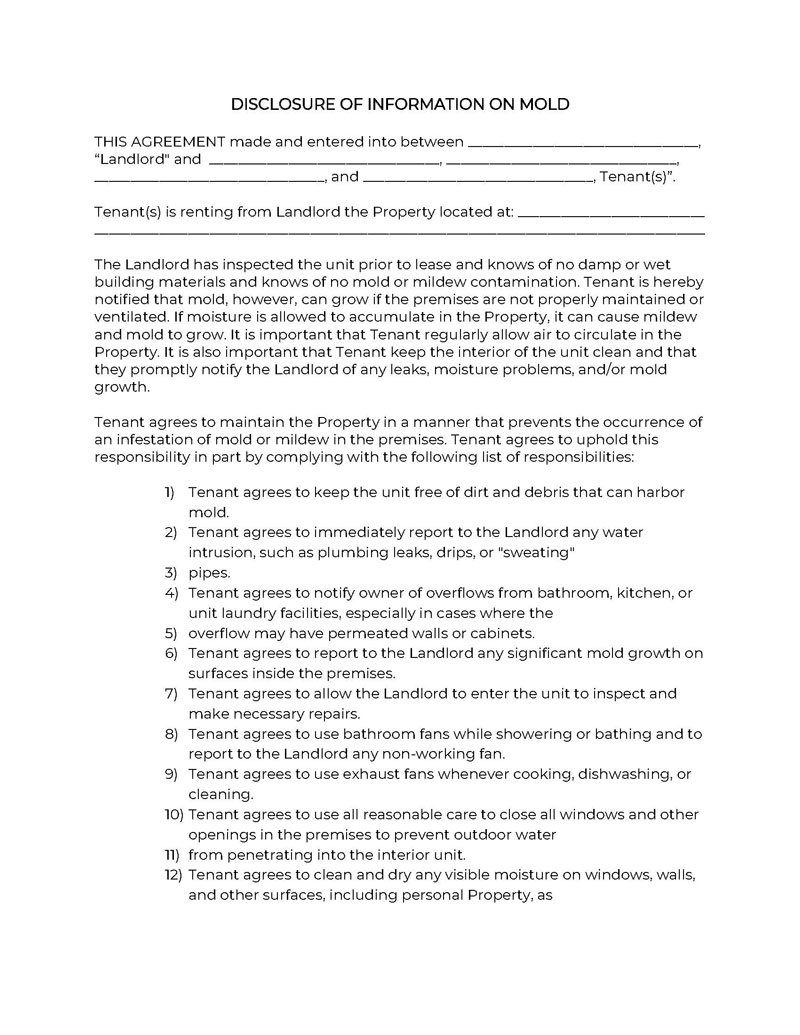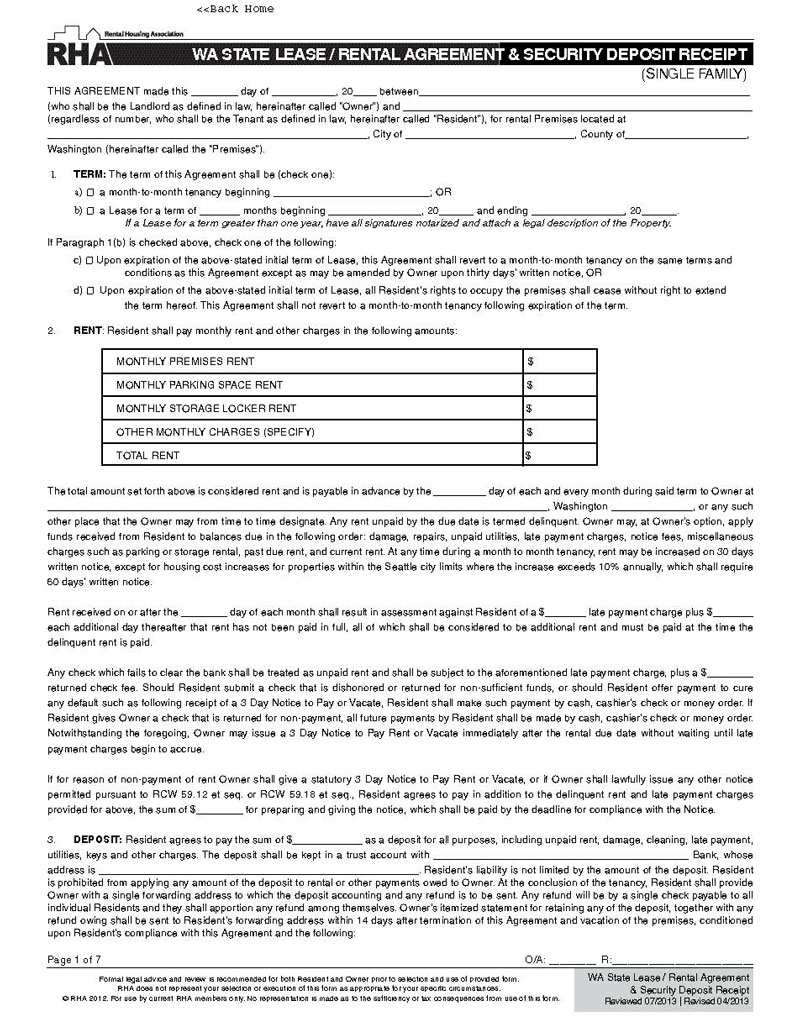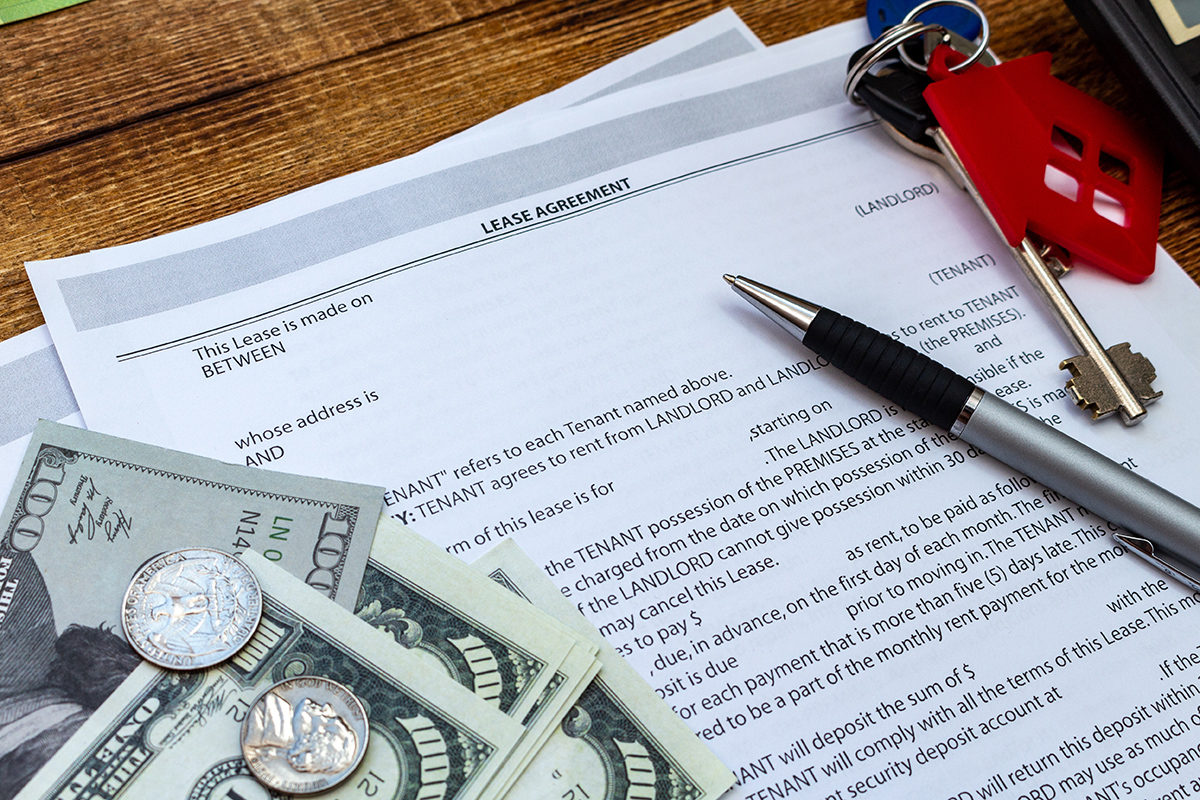A lease agreement is a legal document that delineates the terms and conditions under which a landlord (lessor) rents out his/her private or commercial property to a tenant (lessee).
This agreement declares the rental terms, such as the rental period, the agreed rent, and the rights and obligations of both landlord and tenant. It also contains the repercussions associated with the breach of the contract.
What is a Washington Lease Agreement?
A lease agreement is a legally binding contract used in Washington between a landlord or a property management company and a tenant. This written document contains all requisites for tenancy in Washington, including the rental amount, how long the tenant is permitted to stay, disclosures, and other legal requirements.
This agreement avers the obligations and rights of both landlord and tenant throughout the tenancy period. These obligations and rights are important, as they will be of service in protecting the interest of both parties. In that regard, it is imperative that you, as the landlord, subject the tenant to filling out a rental application form to obtain relevant information about the tenant. On the same note, the tenant must go through the entire document thoroughly, agreeing to all declared provisions before signing it.
A lease agreement in Washington only becomes valid when both parties complete the signing process. Once the process is completed, the tenant is free to move into the property until the end of their tenancy. With each state having specific rules, the agreement must satisfy all the landlord-tenant laws required in Washington. As such, a lease agreement only covers properties within the confines of Washington.
Free Templates
Given below are Washington lease agreement templates:
What You Need to Know About Lease Agreement Laws in Washington
Regardless of the situation you find yourself in; you need to know a few things before signing this agreement in Washington.
The principal thing is to be acquainted with the laws associated with a lease agreement in Washington. This is because Washington enforces particular prerequisites to implement this agreement, and knowing them would help ease your case.
Landlord’s access
Washington actually accounts for two versions of this law as it pertains to the landlord-tenant contract.
- General access: RCW § 59.18.150 of Washington law states that a landlord must provide a two-day (48-hour) notification (minimum requirement) before gaining entrance in order to carry out any maintenance operation on the property. Similarly, if a landlord wishes to allow a potential buyer or another lessee to inspect the property, they will need to notify the current tenant a day (24 hours) before their arrival.
- Emergency access: Under the same law, a landlord gains unrestricted entry into a leased property on the grounds that he/she is there to notify the resident tenant of a looming crisis.
Security deposits
Washington has no standard range in terms of a security deposit. According to state laws or lack thereof, in this case, there is no restriction on how much a landlord can ask for from his/her tenant.
However, RCW § 59.18.280 states that the landlord must return the entire security deposit within 21 days of the lease’s expiration.
Utilities
The law states that a landlord must pay for damages incurred, as well as a $100/day lawyer fee if they choose to shut off utilities to the leased property.
Squatters
RCW § 59.04.050 of Washington state law states that if a landlord should fall out of favour with a tenant, the tenant must pay the rental equivalent of the period in which they occupied the property and then return control of the property per the landlord’s orders.
Seattle requirements
This states that Washington landlords must attach Washington statutes, as well as the Seattle Laws on Property Owner and Tenant Rights and Responsibilities in their lease. This addition must come in the form of addendums.
Warrant of habitability
This law states that landlords must make sure that their properties come with principal amenities such as security locks, air conditioning and heating, smoke detector, plumbing, and a host of other requirements. In this regard, the landlords are under a 10-day period to fix all faults, with the exception of water and electricity, which they must resolve within 24 hours.
In a case whereby a landlord fail to carry out timely repairs, leaving it to the tenant, the tenant is free to subtract the cost from the rent or seize the entire rent.
Evictions
Washington state law grants landlords the power to evict their tenants under three circumstances, each of which has its own condition.
- Failure to pay rent: The landlord must provide a three-day notification before evicting the defaulting tenant
- Breach of lease term: The landlord must provide a ten-day notification before evicting the defaulting tenant.
- Criminal offence: The landlord must provide a three-day notification before evicting the defaulting tenant.
Overall, it takes about two weeks to complete an eviction process in Washington.
Lease terminations
State law requires all landlords to provide a 20 days notification (minimum requirement) in order to terminate a month-to-month lease.
In the same vein, a tenant can decide to annul a fixed-term lease before the specified end date if they are able to provide proof of any of the following:
- Active military duty
- Landlord harassment
- Domestic abuse
- Uninhabitable property
The tenant can terminate the lease and exit the property by providing proof of any of the reasons mentioned above for early lease termination.
Rent increases and fees
This states that landlords in Washington are free to charge any amount as rent for any of their properties. However, for a landlord to increase rent, they must provide a 30 days notification.
Washington state laws do not place a limit on most operational fees. Nonetheless, the state attaches a $40 fee for all rubber checks.
Settling legal disputes
Washington has a small claims court where landlords and tenants can settle their legal disputes if they so wish to. However, the case’s value must be above $250 and less than $5,000 (the upper limit varies across the different Washington counties).
Required Lease Disclosures
In Washington, there is certain information that landlords must disclose before leasing out their properties. Full disclosure of this information is mandatory, as they help protect the tenant from several avoidable circumstances.
The required lease disclosures include the following:
Fire protection and evacuation
All landlords are to provide their tenants with a copy of the Washington state fire protection scheme, according to RCW § 59.18.060. The fire protection document must contain information pertaining to a fire evacuation plan, evacuation routes, and emergency notification plan.
Equally, landlords must disclose the property’s smoking policy, as well as if the property comes equipped with smoke detectors, sprinklers, and a fire alarm. However, if the unit is a single-family unit, then providing this document is not compulsory. You only need to provide this disclosure when you have more than one unit on a property.
Landlord/agent identification
All landlords must know the identity and address of the agent(s) tasked with providing legal notices on their behalf. According to RCW § 59.18.060, they must attach this information to the lease agreement or somewhere noticeable within the property.
In a case whereby the landlord lives outside of Washington, appointing an agent becomes more of a necessity rather than leisure.
Lead-based paint disclosure
According to RCW § 4852(d), all landlords who built their homes before 1978 are obligated by law to disclose to their tenants the existence of lead-based paint and other lead-based hazards.
Mold disclosure
The Washington State Department of Health requires all landlords to tender a written notice that contains information pertaining to the existence of molds in the rental unit. The notice, aside from housing information pertaining to the existence of molds, must also cover likely health risks and precautionary measures.
The landlord must tender this notice to the tenant before or at the point of signing the lease, as required by RCW § 59.18.060(13).
Rental inspection checklist
Upon payment of the stipulated security deposit, according to RCW § 59.18.260, the landlord must give the tenant a move-in checklist. The checklist takes into account everything in the unit prior to rental. This is to allow the landlord to retain a portion of the security deposit on account of the tenant damaging any item on the list. The amount retained must be of equal value to the item damaged.
Conversely, if the landlord fails to provide this checklist, the tenant is entitled to a full refund of their security deposit, even if the unit has several damaged items upon move-out.
Non-refundable fees
According to RCW § 59.18.285, all landlords are to plainly affirm the existence of any non-refundable fee in the lease agreement.
Security deposit receipt
According to § 59.18.270, all landlords are to provide the details (name and address) of the financial institution where they keep the security deposit in the receipt issued to the tenant.
Furthermore, they are to clearly state the terms and conditions behind the security deposit, including the holding and disbursement processes.
Voter registration packet
According to SMC 7.24.080, all landlords are to provide their tenants with a voter registration packet upon completion of the lease agreement. However, this law is only for Seattle residents.
Commonly Used Lease Agreements in Washington
There are different types of agreements used in Washington, and each of them has its own form. These forms differ from each other in terms of their functionality and usability. Therefore, it is important that you know which form applies to your situation. This information will help you avoid fruitless endeavours.
Concerning that, we have listed seven commonly used agreements in order to ease your rental journey.
Commercial lease agreement
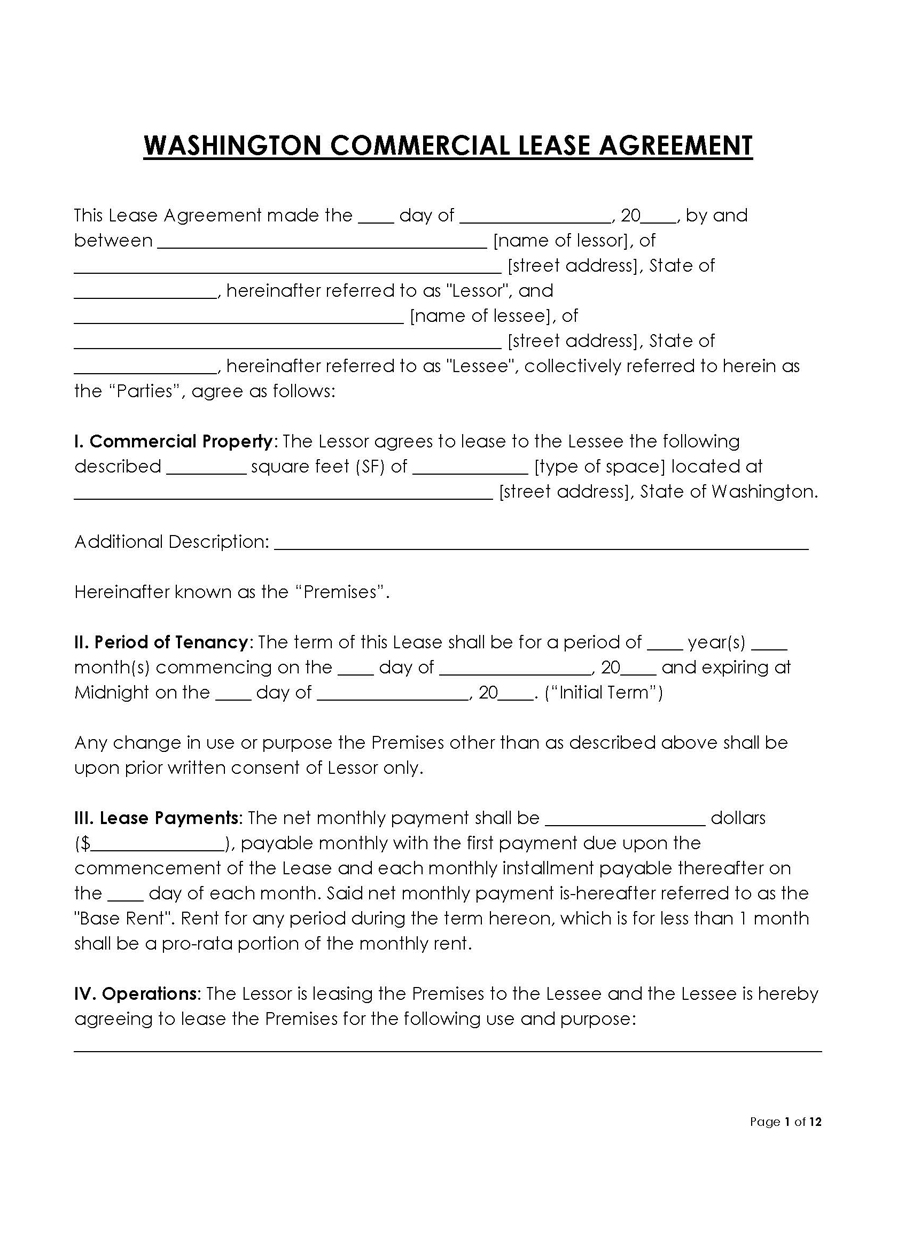
A commercial lease agreement in Washington is one that delineates the terms and conditions associated with renting a property for commercial purposes. This includes renting an office, retail, and industrial building.
Standard residential lease agreement
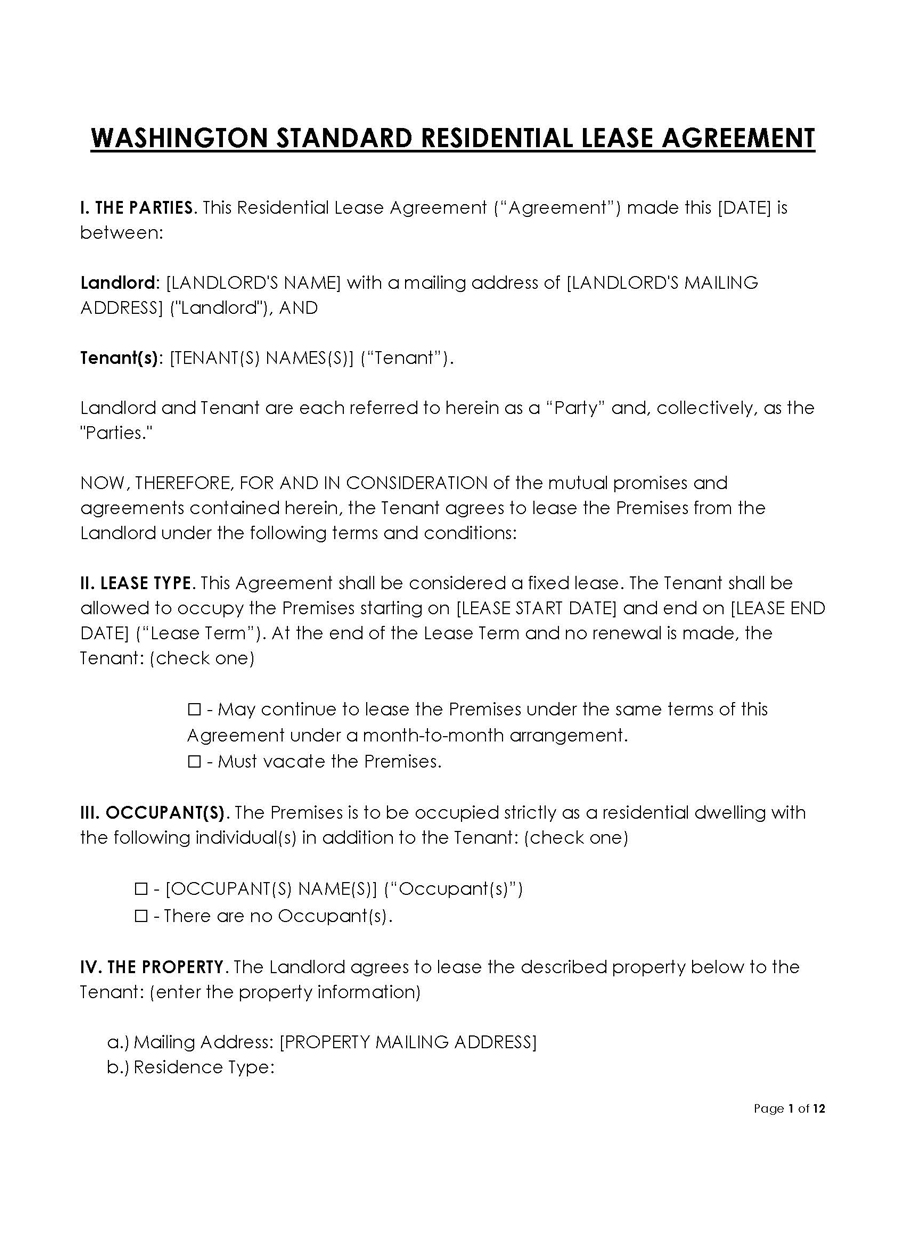
A standard residential lease agreement in Washington is one with a one-year validity period. After this period, both parties may decide to convert the lease agreement to a month-to-month lease agreement. This document’s main clauses are that the validity period would last for a period of one year and that the tenant must pay their rent on the 1st of every month.
Month-to-month lease agreement
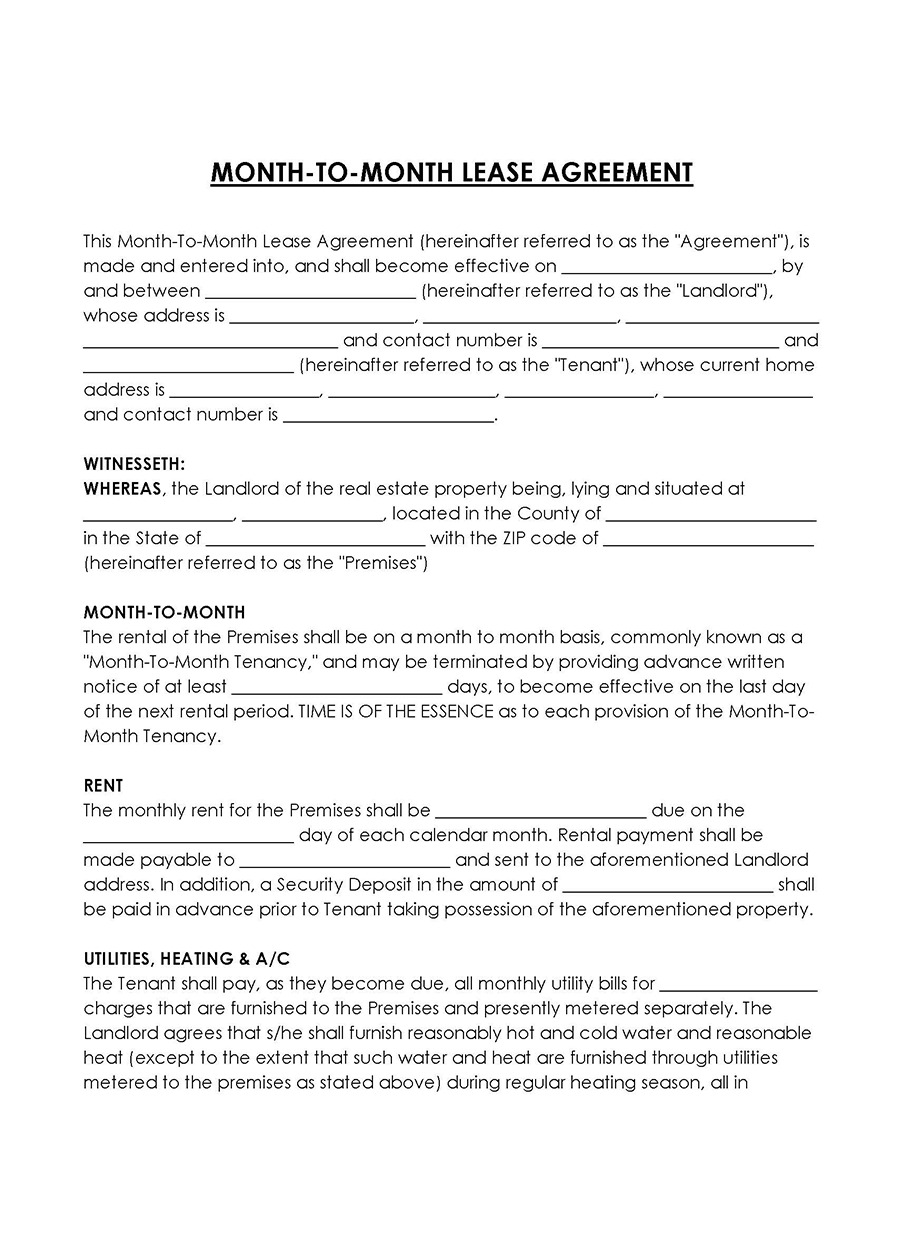
This agreement is one that grants a tenant the leeway to rent out a property in Washington on a monthly basis. This agreement has no stipulated end date; hence, the tenant can decide to annul the lease at any point in time. However, for the tenant to annul the lease, they must provide a 20 days notification (minimum requirement).
Rent-to-own lease agreement
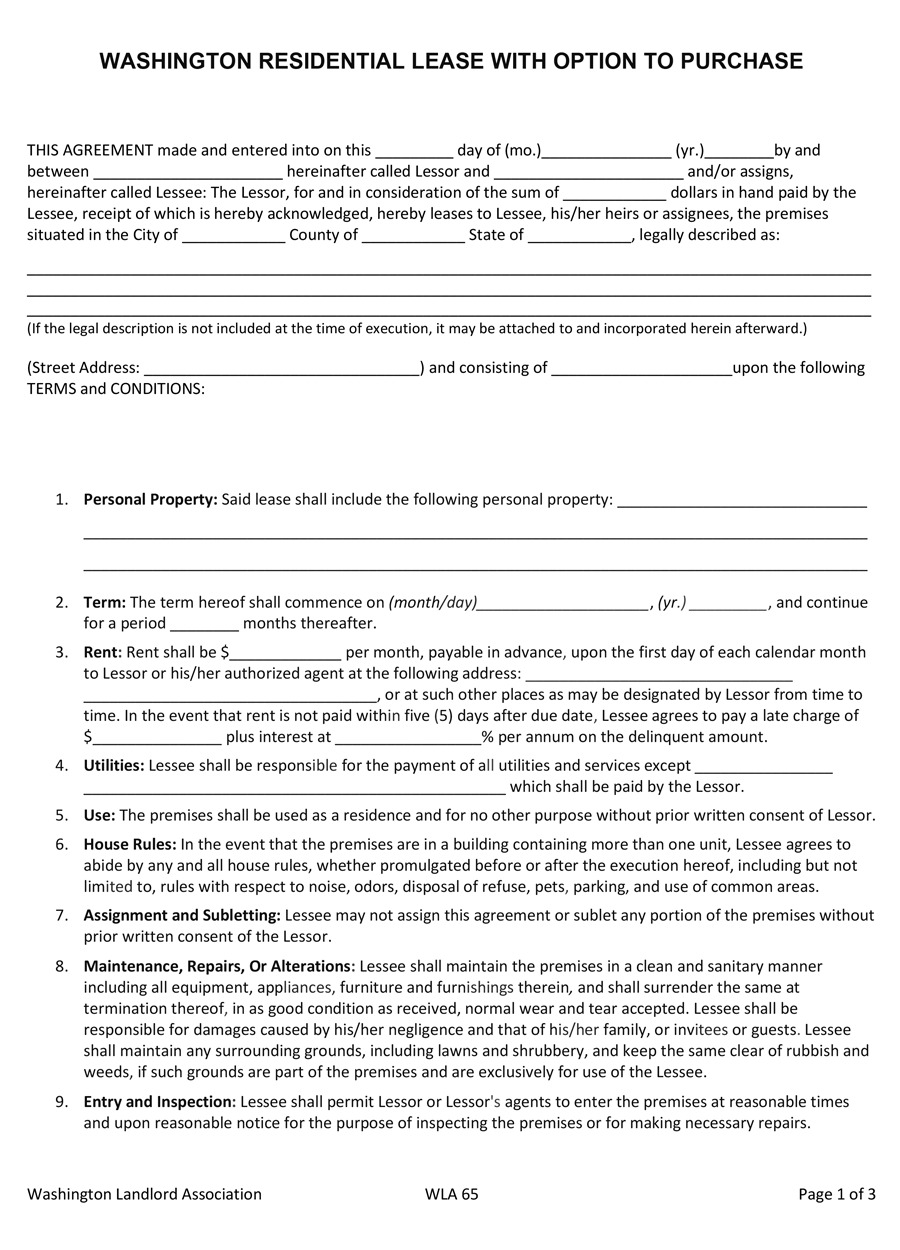
A rent-to-own lease agreement is one that carries additional prerequisites that cater to the acquisition of a residential property in Washington.
Roommate lease agreement
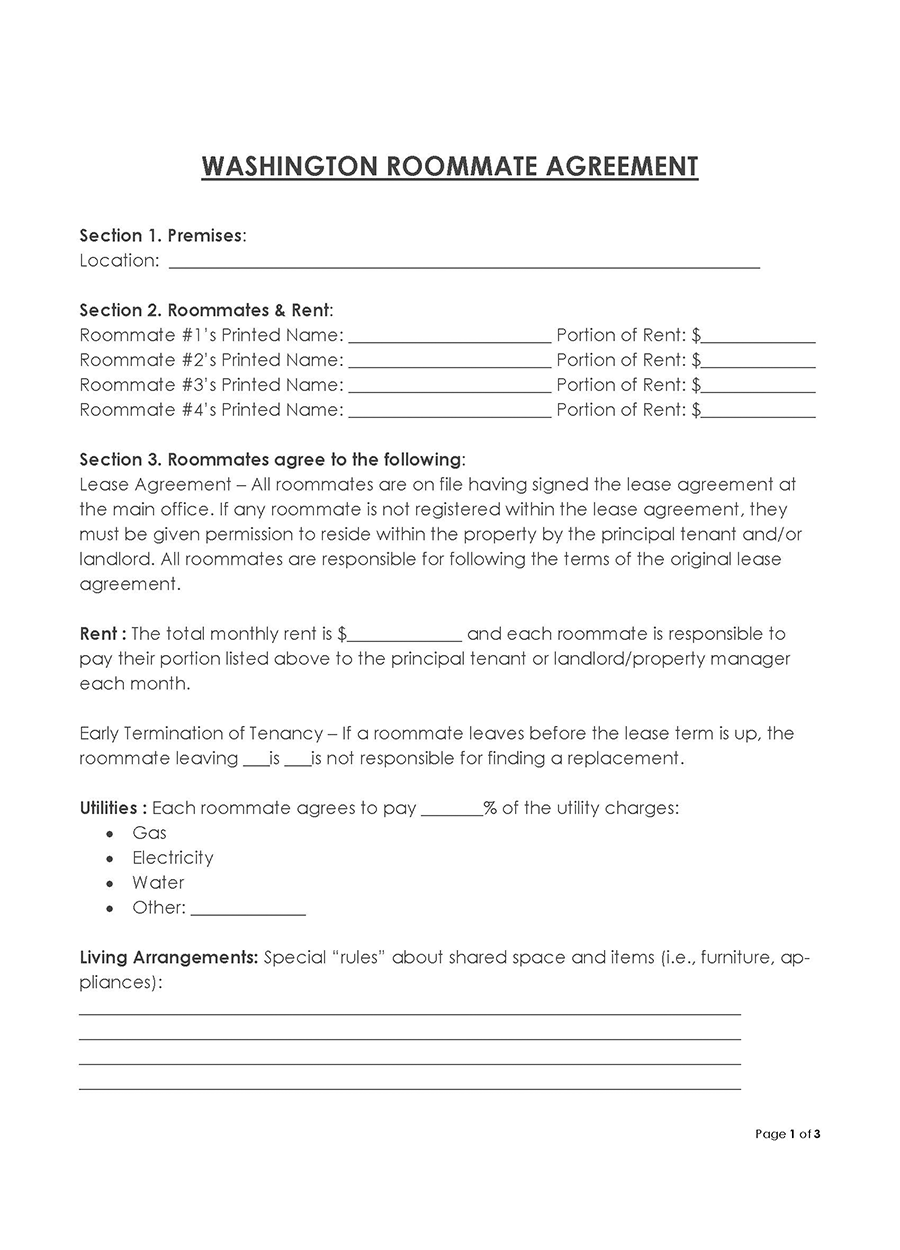
It is the one that delineates the responsibilities of each individual sharing a common property in the state of Washington. This includes areas that are restricted to specific individuals and areas that are open to all residents.
Sublease agreement
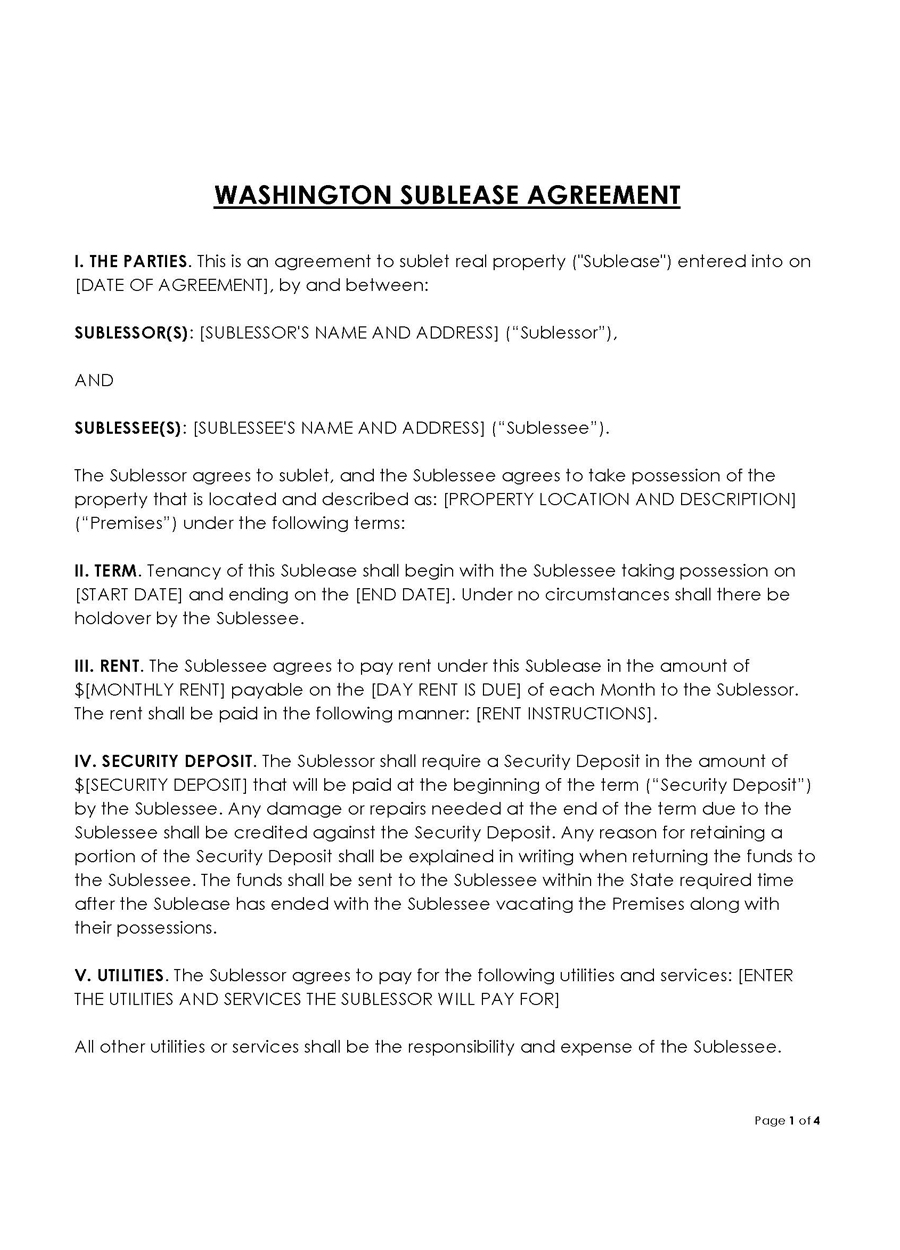
A sublease agreement is one that grants a tenant the power to rent out a part of their entire unit in Washington to a different tenant. The existing tenant (sublessor) must reach an accord with the landlord before renting out to a different tenant (subtenant). The entire process is what we refer to as ‘subletting.’
Rental Application Form
A rental application form is a legal document used by landlords and agents in Washington during the leasing process.
This document helps the landlord and agent obtain relevant information about the prospective tenant before letting the tenant rent out their property.
As stated earlier, utilising the right lease agreement form is vital as it will save you a lot of stress. Therefore, the best strategy will be to utilise its template in order to fast-track your rental process. A lease agreement template is a pre-structured agreement form that allows both parties to fill in their details without the need to create one from scratch. These templates are inherently easy to use as they already contain the necessities, thus, making them time-saving and economical. Not only are they available to download for free, but you can also customize them to fit all of your needs.
Final Thoughts
As a resident of Washington, renting a property comes with its own fair share of risks. Obtaining a legal document will be your safe guide to avoiding all risks. A lease agreement is necessary when seeking to rent out a property, regardless of its size and its intended use.
Nonetheless, your best interest should be at the top of your priorities, regardless of the circumstances you find yourself in. As such, placing emphasis on the specifics of your agreement will put you in the best position while renting out a property. Washington’s laws remain absolute, which is why you must stick to them judiciously. Follow the guide provided above for making your own lease agreement that you will be able to use in Washington.
